Eucalyptus Oil
$16.00 – $77.00 — or subscribe and save 10%
Eucalyptus oil is a camphorous essence from gigantically impressive tree leaves which has been used for thousands of years as medicine for it’s insecticidal, anti-microbial, immune stimulatory properties. Eucalyptus oil benefits include:
- Analgesic
- Anti-inflammatory
- Anti-microbial
- Insecticidal
- Respiratory Infections
- Expectorant
- Asthma & COPD
Eucalyptus Oil (Eucalyptus spp.)
Eucalyptus oil is a camphorous essence from gigantically impressive tree leaves which has been used for thousands of years as medicine for it's insecticidal, anti-microbial, immune stimulatory properties. Eucalyptus oil benefits include:
- Analgesic
- Anti-inflammatory
- Anti-microbial
- Insecticidal
- Respiratory Infections
- Expectorant
- Asthma & COPD
~ Most Popular Species of Eucalyptus ~
Eucalyptus globulus oil ~ "Blue gum" trees which seems to be a full, balanced essence. Eucalyptus globulus & radiata both seem to be the most commonly distributed species amongst many essential oil companies. Very velvety eucalyptus.
Eucalyptus polybractea oil ~ The flowering trees are sometimes referred to as "Blue Mallee" trees due to the copious and sticky sap produced when the bark layer is broken. They are high oil producing trees and the Blue Mountains of Australia are called so because of a blue haze created by light scattering from volatile terpenoid compounds emitted from the eucalyptus trees. Blue mallee, contains approximately 88% 1,8-cineole determined by GC-MS. This species typically has the highest eucalyptol concentration (1,8-cineole) and seems to be the most simple Eucalyptus species from a chemical composition standpoint (least constituents).
Eucalyptus radiata oil ~ Known for it's powerful anti-viral properties, this may be the best eucalyptus for colds/flus. Has an interesting potent, psuedo-minty note underneath the high camphor notes. Usually best blended with other essences in smaller amounts for therapeutic formulas, one of the most wide-available Eucalyptus species on the market.
~ Less Common Species of Eucalyptus ~
Eucalyptus citriodora oil - "Lemon Eucalyptus" delivers a very potent extract full of citronellal. Aroma and therapeutic effects very similar to citronella essential oil - powerful cleansing and lemon fragrance. Avoid using neat (undiluted) on the skin.
Eucalyptus dives oil ~ AKA"Peppermint Eucalyptus" has similar therapeutic effects as the more common eucalyptus globulus with an extra cooling note of peppermint. The peppermint like aroma is due to its high piperitone content. This refreshing and cooling oil works magic when used to relieve symptoms of congestion and/or infection of lungs and nasal pathways.
Eucalyptus smithii oil ~ Eucalyptus smithii is perhaps one of the most interesting Eucalyptus species with curious notes. This has an interesting application for botanical perfumery in adding high camphorous notes and offering unique base notes. One of the most rare Eucalyptus species on the market.
Dr. Nick Notes
Eucalyptus, as a group, are comprised of over 700 different species with most occurring naturally in Australia. While different varieties of eucalyptus have different terpene compositions (thus different therapeutic benefits), they are typically oils with a high 1,8-cineole (eucalyptol) concentration. Eucalyptus has been demonstrated to increase white blood cell count, thus stimulating the immune system even in the absence of infection (*)
Eucaplyptol (1,8-Cineole) has high pharmacological activity and many mechanisms of therapeutic value. In respiratory conditions oral eucalyptol has been shown to reduce the dependence on oral glucocorticoids for severe asthmatics (1). Mechanistically, eucalyptol has shown to have inhibitory effects on cyclooxygenase in vitro and ex vivo which may result in a decrease of the inflammatory mediators involved in asthma. In Chronic Obstructive Pulmonary Disease (COPD) oral eucalyptol has been shown to reduce exacerbations while raising global lung function and quality of life in COPD patients (2). It may act as an expectorant in these patients by stimulating mucocilliary clearance. Eucalyptol is pharmacologically active as topical analgesic and may work by blocking receptors inflammatory receptors responsible for sensing noxious cold while stimulating receptors cooling feeling (3).
Eucalyptus oils are usually antimicrobial, insecticidal and potentially antifungal or antiviral depending on the species among other factors. Antimicrobial properties extend to drug resistant bacteria which have been shown to be susceptible to eucalyptus oils (4). Insecticidal preparations have been shown to help repel mosquitoes as well as kill head lice in solutions (5,6, 7).
How to Use
- Eucalyptus works as an analgesic and may be massaged into the skin – try 20% infused into almond oil.
- A few drops in a hot bath melts soreness away.
- Can apply directly onto wounds with it's powerful anti-microbial, anti-bacterial, anti-fungal properties.
- Add to a room diffuser using several drops to neutralize offensive smells and purify the area.
- Use several drops on a wet sponge to clean counters and funky surfaces.
- Use 2 drops in 2 ounces of hot water and add a pinch of Himalayan salt – gargle for sore throats.
- Try vaporizing one drop in an Essential VAAAPP to break up mucous in the lungs (expectorant) and stimulate the immune system.
- Topically for pain, inflammation, or colds onto the chest.
- Great for breaking up mucous – try putting a few drops in the hands and take deep inhalations.
- Apply neat to fresh cuts or wounds.
- May lower body temperature with it's febrifuge properties.
- Add to water for a floor washing solution to kill funky bacteria naturally.
- Can be used to dissolve sticky solutions as a solvent – be aware as eucalyptus may eat some furniture's varnish.
- Eucalyptus may be used internally under medical supervision, not to exceed 600mg each day (~15-20 drops) for short periods of time. (EOW does not recommend this, it's found in the literature)
- Infuse drops into raw honey to create a potent medicinal concentrate.
~ Be Blessed ~
Aromatic Scent: Uplifting camphorous notes, cleansing & purifying. Different species offer unique variances from peppermint tones (Dives), lemon-citral notes (Citriadora), highly camphourous and fresh, etc.
Blends Well With: Clary Sage, Howood, Lavender, Niaouli, Orange, Oregano, Peppermint, Pine, Ravensara, Rosemary, Thyme, White Sage
Notes: Organic
Country of Origin: Various
Terpenes:
Various including: 1,8-cineole, citronellal, citronellol, citronellyl acetate, p-cymene, eucamalol, limonene, linalool, β-pinene, ϒ-terpinene, α-terpinol, alloocimene, aromadendrene
References
Juergens UR, Dethlefsen U, Steinkamp G, Gillissen A, Repges R, Vetter H. Anti-inflammatory activity of 1.8-cineol (eucalyptol) in bronchial asthma: a double-blind placebo-controlled trial. Respir Med. 2003 Mar;97(3):250-6.
Worth H, Schacher C, Dethlefsen U. Concomitant therapy with Cineole (Eucalyptole) reduces exacerbations in COPD: a placebo-controlled double-blind trial. Respir Res. 2009 Jul 22;10:69. doi: 10.1186/1465-9921-10-69. Mol Pain. 2012 Nov 29;8:86. doi: 10.1186/1744-8069-8-86. 1,8-cineole, a TRPM8 agonist, is a novel natural antagonist of human TRPA1.
Takaishi M, Fujita F, Uchida K, Yamamoto S, Sawada Shimizu M, Hatai Uotsu C, Shimizu M, Tominaga M.
Nezhad FM, Zeigham H, Mota A, Sattari M, Yadegar A. Antibacterial activity of eucalyptus extracts on methicillin resistance Staphylococcus aureus. Res J Biol Sci 2009; 4(8): 905-908
Shin EH, Song BG, Lee IH, Park MY, Ahn YJ, Chang KS. Repellency of cassia bark, eucalyptus, and star anise oils and their major constituents to Leptotrombidium pallidum (Acari: Trombiculidae). J Med Entomol. 2013 May;50(3):579-84.
Revay EE, Junnila A, Xue RD, Kline DL, Bernier UR, Kravchenko VD, Qualls WA, Ghattas N, Müller GC. Evaluation of commercial products for personal protection against mosquitoes. Acta Trop. 2013 Feb;125(2):226-30. doi: 10.1016/j.actatropica.2012.10.009. Epub 2012 Oct 22.
Barker SC, Altman PM. An ex vivo, assessor blind, randomised, parallel group, comparative efficacy trial of the ovicidal activity of three pediculicides after a single application--melaleuca oil and lavender oil, eucalyptusoil and lemon tea tree oil, and a "suffocation" pediculicide. BMC Dermatol. 2011 Aug 24;11:14. doi: 10.1186/1471-5945-11-14.
** This product has not been approved by the FDA. This product is not intended to diagnose, treat, cure or prevent any disease. If you are pregnant, nursing, taking medication, or have history of seizure disorder or any other medical condition, consult your physician before using this product. **
6 reviews for Eucalyptus Oil
Join Our Mailing List
World-Class Essential Oils
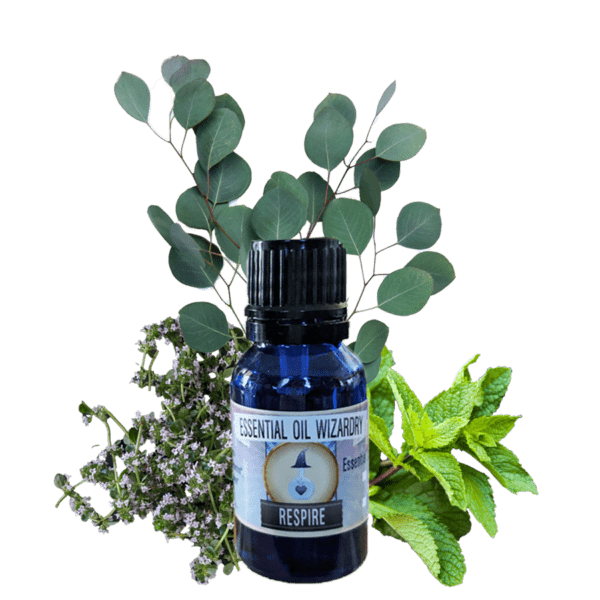
Wizard Alchemy Blends
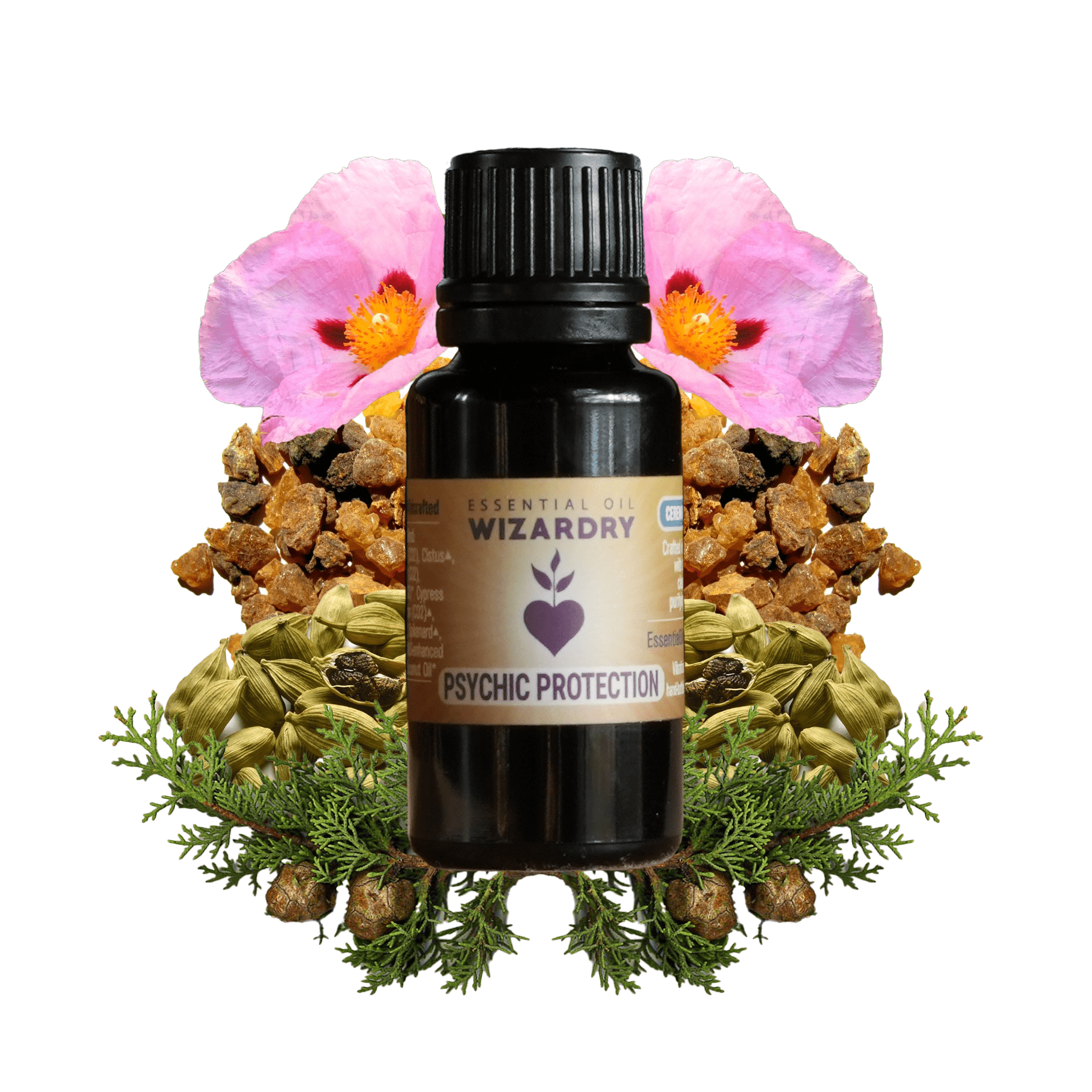
Shop By Benefits
podcasts, events, and classes/courses
Alchemy Club Membership
The EOW Alchemy Club is a one-of-a-kind monthly subscription service for those seeking an affordable way to explore the wonderful world of botanical alchemy.
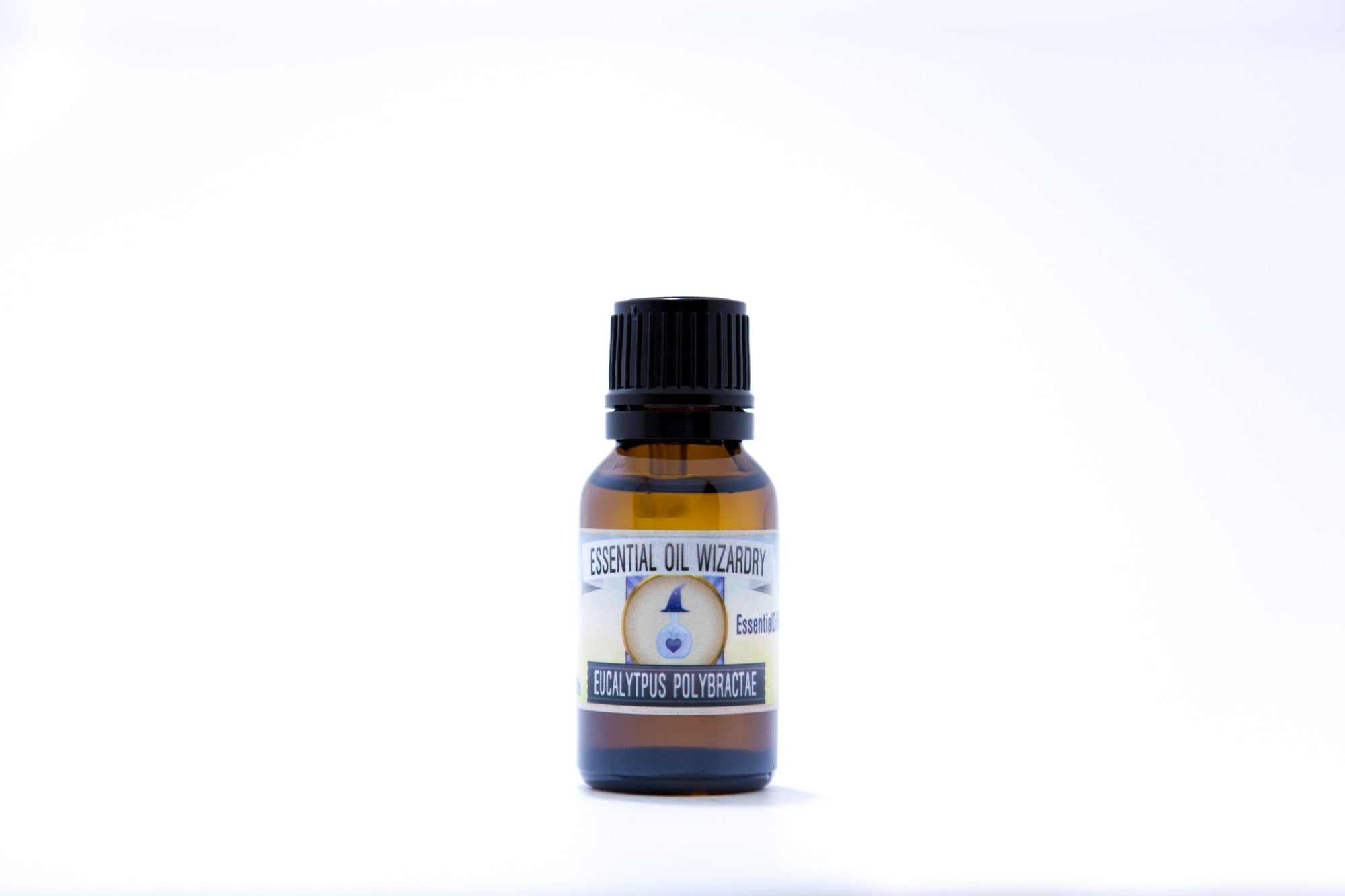
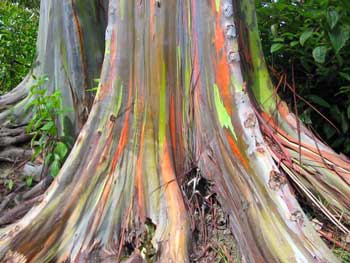

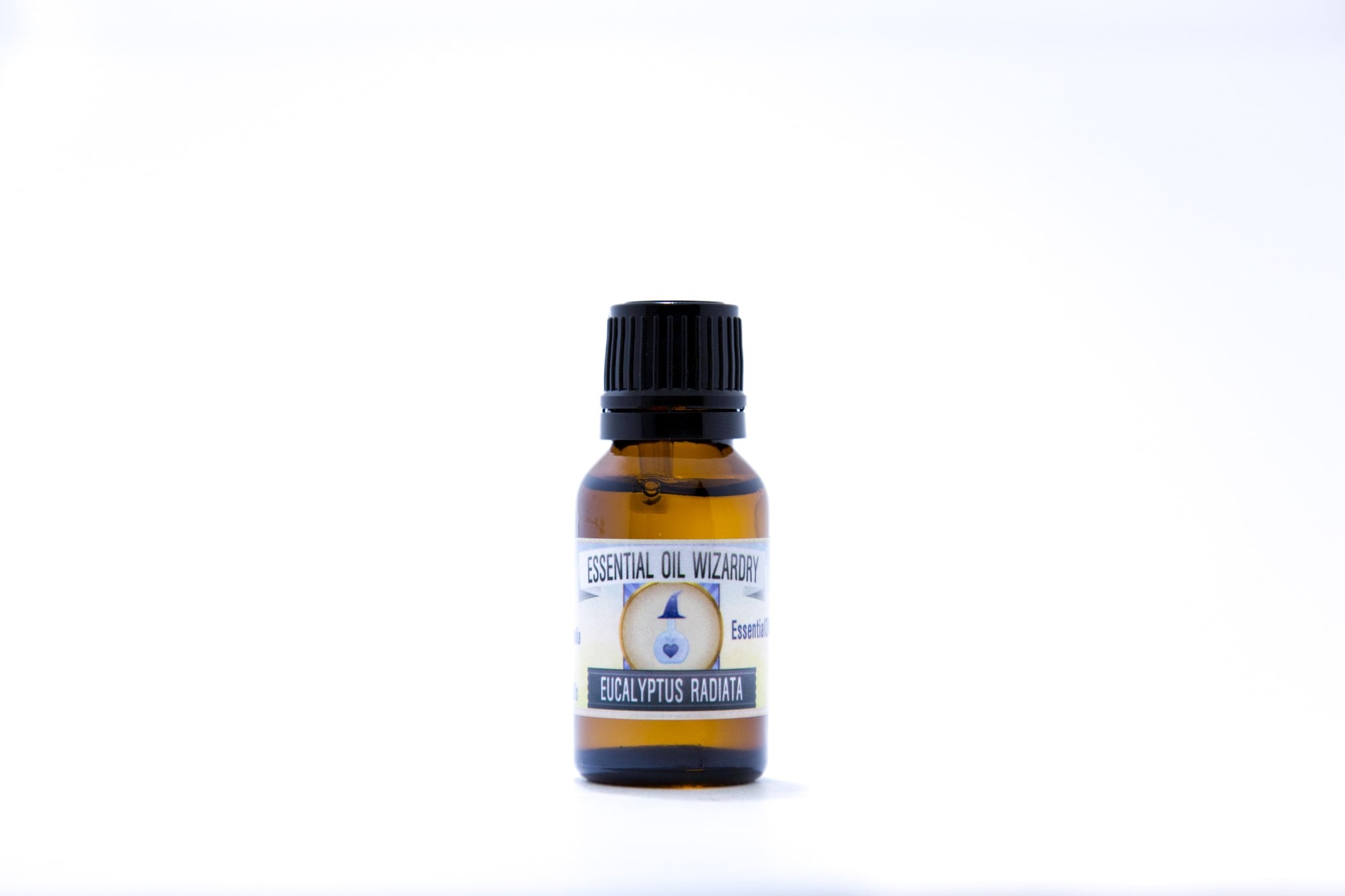
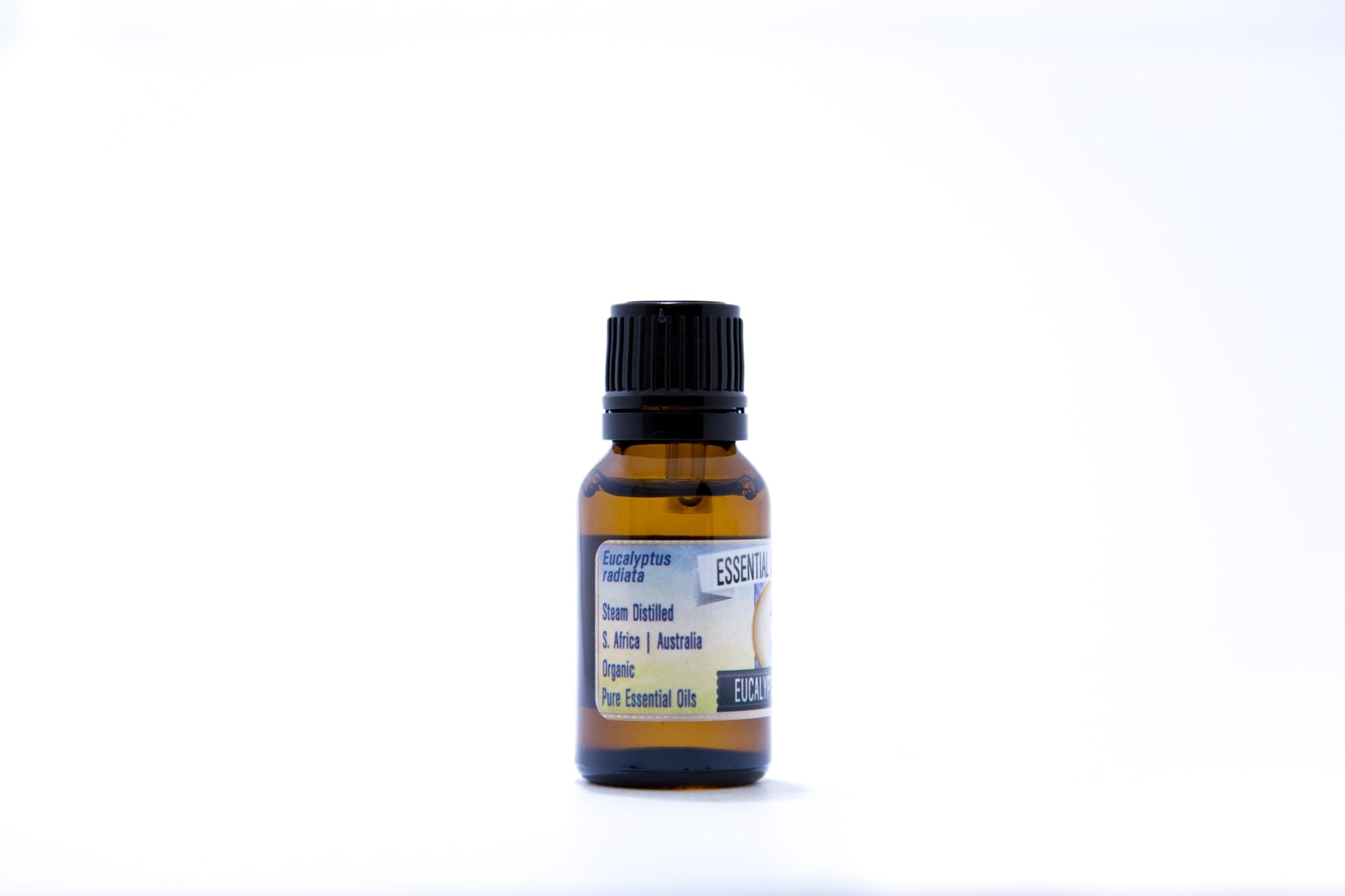
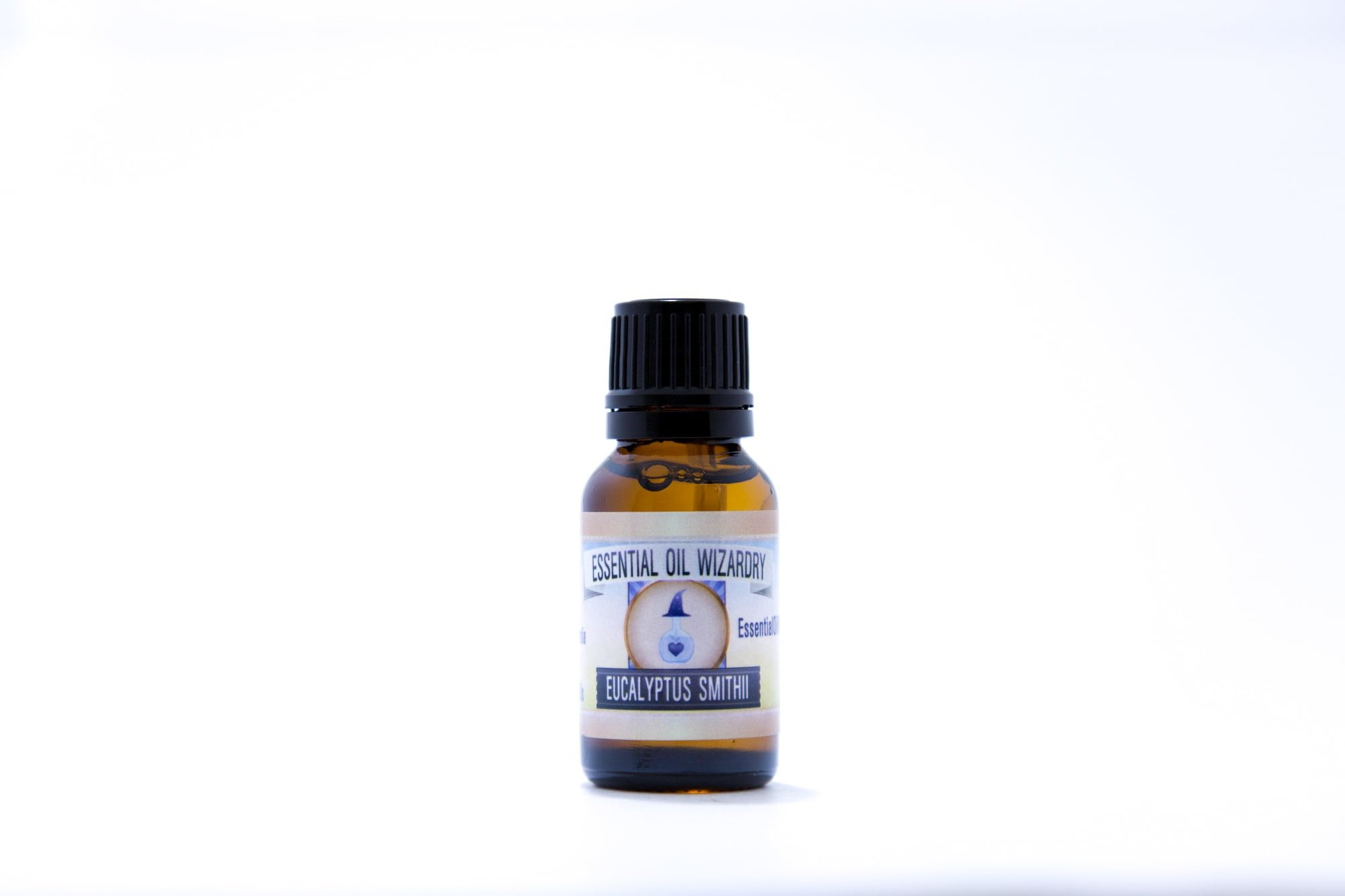
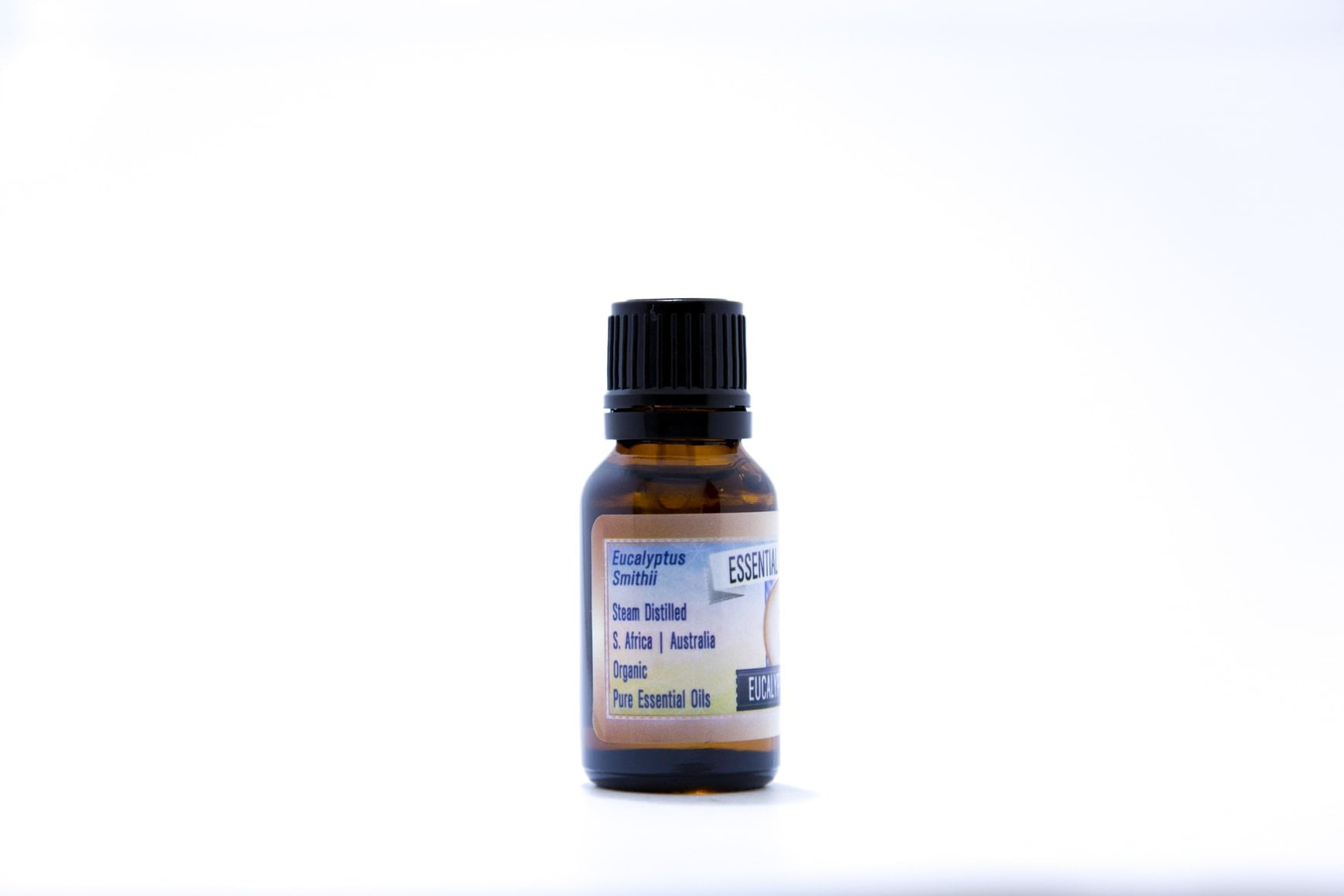
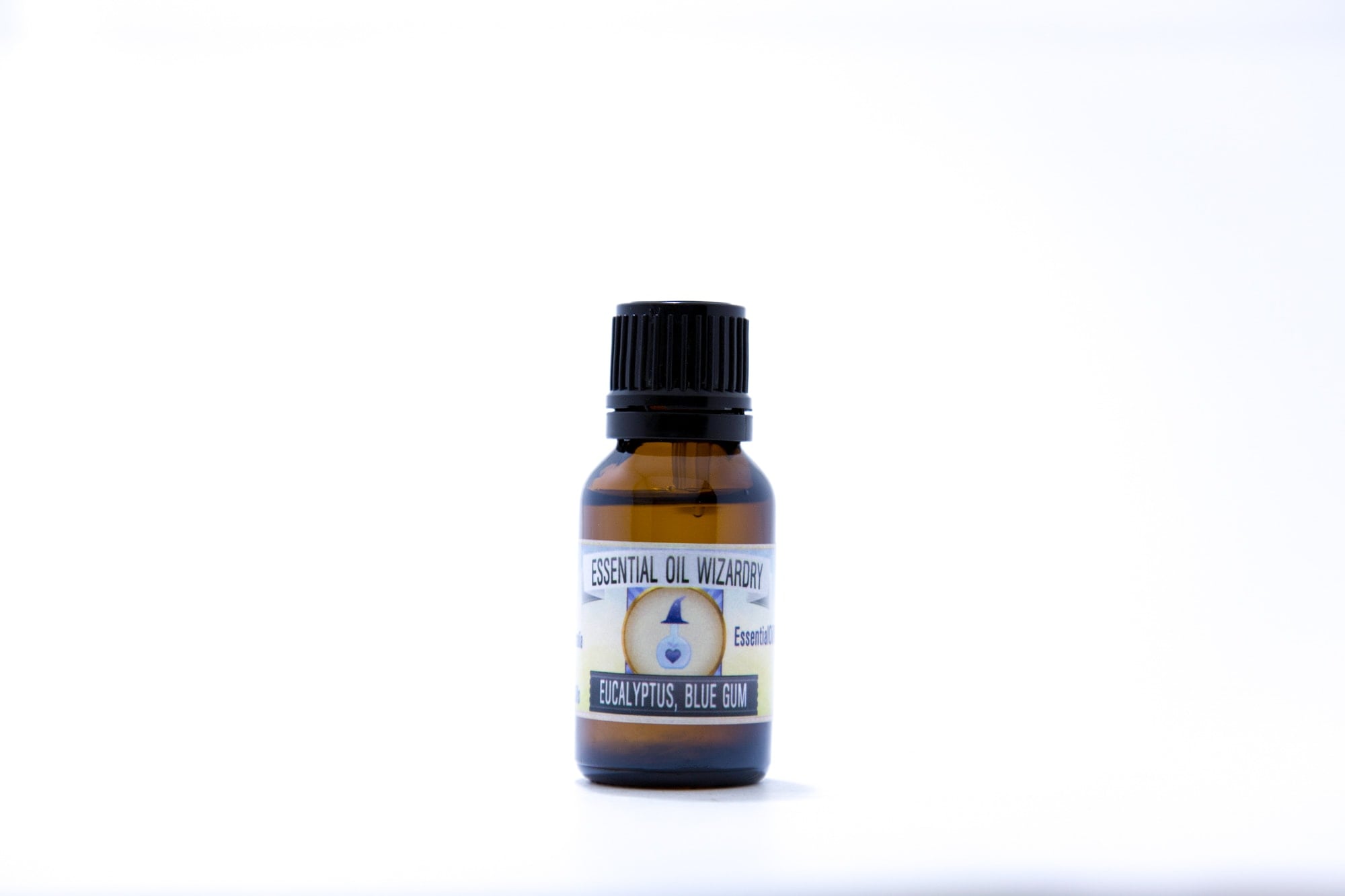
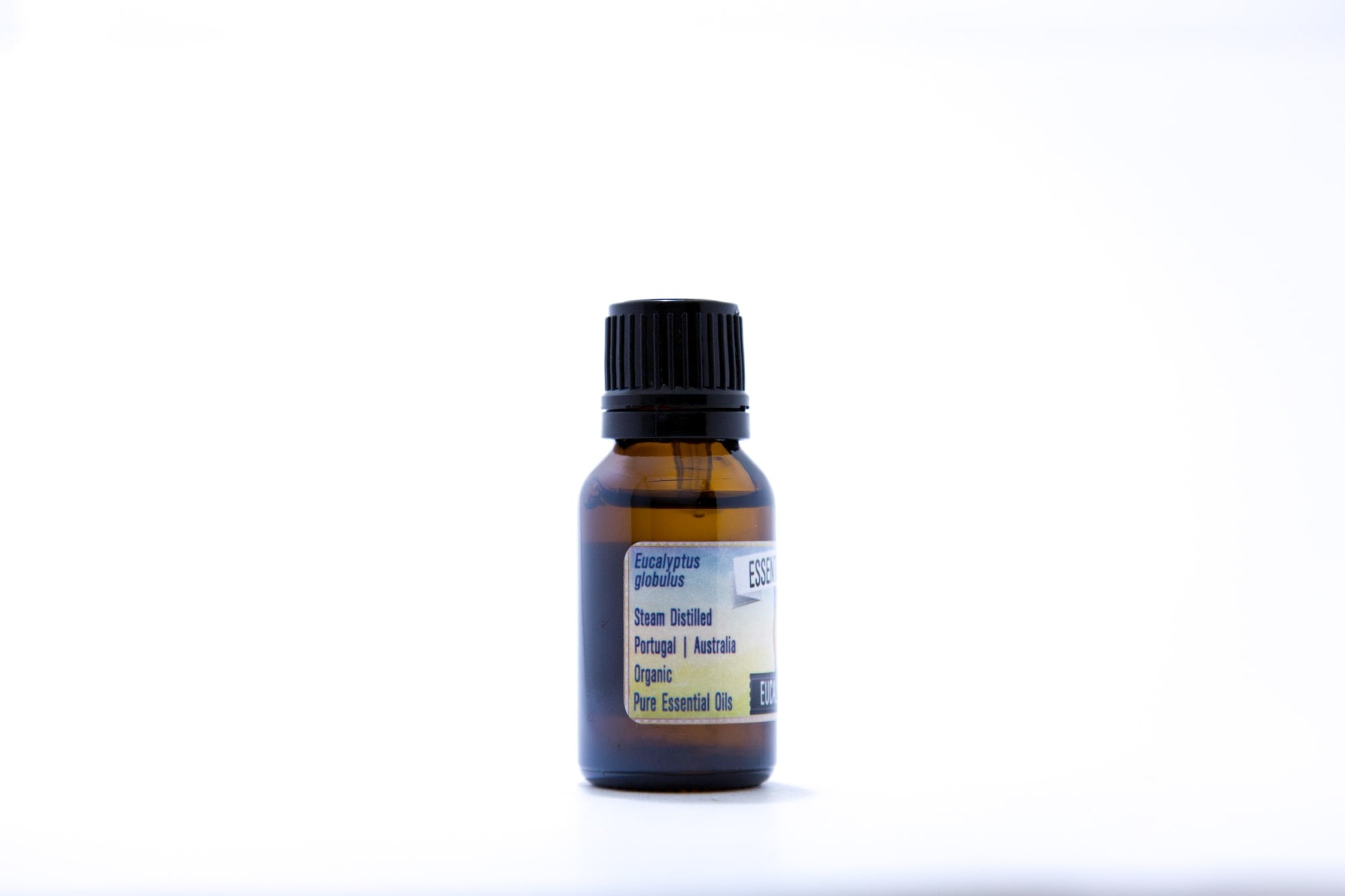
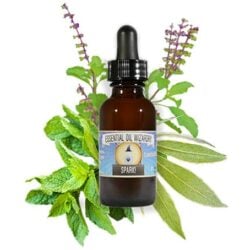


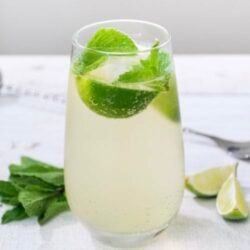
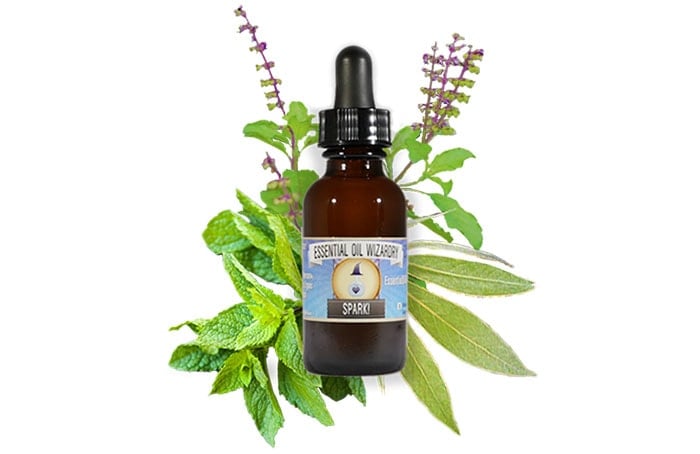


Naymar Prikhodko (Essential Oil Wizardry) –
Infused with so much relaxation. It helps clear up my respiratory system. Blended to perfection. Exquisite aroma! Thanks!!
Naymar Prikhodko
Massage Therapist, LBSW
Shane Bissell (Essential Oil Wizardry) –
Darrin W. (Essential Oil Wizardry) –
Jill (Essential Oil Wizardry) –
Amazingly potent!!
Rebecca Nguyen (Essential Oil Wizardry) –
Laura B. (Essential Oil Wizardry) –